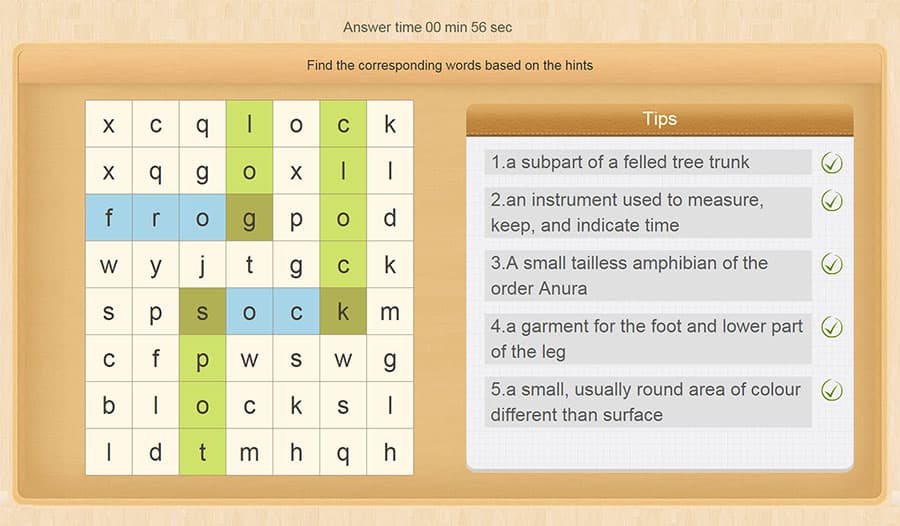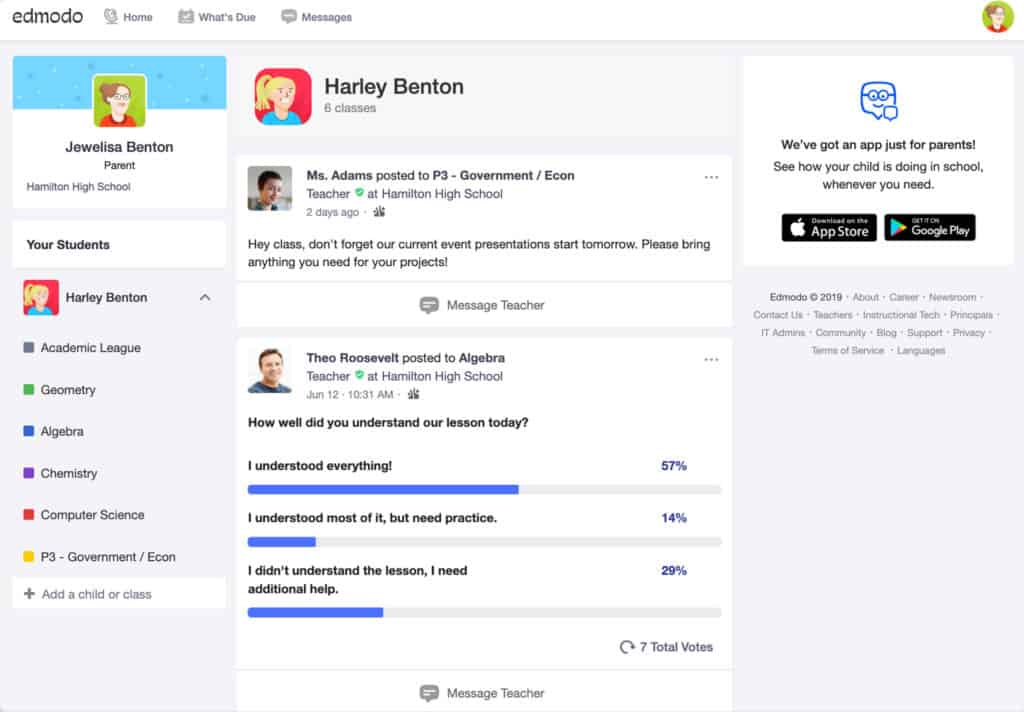
Above: Sample screen from Edmodo, which the MOE will deploy to facilitate online learning in the primary and secondary school systems.
BitDepth#1246 for April 23, 2020
We were supposed to be out of isolation now. That’s not going to happen. Every additional week brings new challenges and the possibility that school will not convene until September.
The response of the Ministry of Education (MOE) to these issues has been, shall we say, slow to spin up.
A “data collection” request from Education Minister Anthony Garcia was sharply rebuffed by TTUTA. Their point is unassailable. The Education Ministry cannot ask for information about how schools handled this unusual situation voluntarily, and on their own, after saying nothing for critical weeks.
What needs to happen now is this.
Understand the situation.
Last week Minister in the Ministry of Education Dr Lovell Francis announced last week that 60,000 students in Trinidad and Tobago do not have devices. That’s probably wrong. A good benchmark for device ownership and connectivity would be the Schoolfeeding Programme, which announced in 2017 that it served 88,000 lunches to 800 schools.
Rounding that number up to 100,000 might be sensible, since some parents supply their children with substandard meals rather than accept food that infers social disadvantage.
One teacher I spoke with (all requested anonymity) pointed out that less than half of her primary school class has the required device and connectivity. She cannot contact the parents of a quarter of the class at all.

Having equipment is only the start.
“I am legit feeling bad that I don’t have high-speed Internet and a computer,” said another.
“A smartphone was all I needed to maintain contact with my parents until now.”
The MOE has just reached out to principals to assess the needs of teachers in their schools, but that information is still being collated.
It’s a process that should have begun weeks ago and will take more time to gather, assess and act on.
“There is a difference between doing something because you want to do it and doing it because you are forced to,” observed another.
“We have been thrown into the deep end along with everybody else.”
Almost all the course information available online is couched deeply in pedagogy speak. The teaching outlines are indecipherable to non-teachers.
Make the teaching expectations accessible.
The MOE has touted their online learning modules proudly.
What they have not mentioned is that almost all the course information available online is couched deeply in pedagogy speak. The teaching outlines are indecipherable to non-teachers.
It’s time to open-source the school curriculum and clarify what is expected of student learning term by term.
What should be a steady progression up a gradient of learning is, instead, a particularly confusing game of snakes and ladders.
All the third-party education opportunities are focused, including the government’s site, on students facing the SEA, CSEC, CAPE and CXC examinations. That’s a lot of children, but it’s less than a quarter of the school population. There is very little there for the rest.
Set reasonable minimum expectations.
Parents are not teachers. Two solid hours of work per day is likely to be the reality. In a stay-at-home household, one parent is likely to be at home, working while also coaching 2.5 children on the work that’s coming in over the Internet.
How many devices should be available in that environment? What connection speeds make any of this an achievable idea?
“There is no plan articulated so far that takes the human element into consideration,” I was told.
“The situation has exposed the flaws that we always knew were there.”
Confer with teachers regularly.
Despite the promise by Dr Lovell Francis that teachers have been trained in these systems, there is little evidence that any training targeted primary schools. In secondary schools, the training might have identified teachers for learning opportunities, but there is also no evidence that they were seeded as evangelists or trainers in their respective schools.
Distance learning is to be enabled on the Edmodo platform, which appears to be a collaborative instruction delivery and messaging tool, not a classroom interface platform.
Teachers were not consulted on this decision, and it’s increasingly clear that top-down mandates by the MOE will cause problems.
Teachers handling students in these new virtual engagements will be the most valuable source of learning and adaptation to this new education environment.
The MOE should appoint a taskforce to gather information and innovate on daily findings from the field to rapidly innovate responses.

Plan for a future that will look different.
And not always for the better. Private schools, who depend on school fees to survive and pay their rents and teachers, have pressed ahead vigorously to earn their keep.
In just a few weeks, the country may face an education chasm that shears along the lines of its digital haves and have-nots.
“Education,” one teacher pointed out, “is no longer the great equaliser, it is now the great divider.”
Teachers in remote areas face an even more daunting task. With no access to reliable Internet and students even less well equipped, they may need to distribute learning materials by stuffing them into the post boxes of children’s homes.
Reimagine the role of the Ministry of Education
The UNC may have run off the available roadway with their hasty laptop initiative, but the education system under Anthony Garcia has been all about reverse gear in its approach to modernising education.
This is an opportunity to plan, not just for the next few months, but for a future that always demanded a very different focus on education and learning outcomes.
The MOE must become a facilitator of education, not a dictator of policy, engaging with students and teachers to develop an approach to 21st century learning that does more than ride technology, but also engages it as a leveraging tool of learning and continuing workplace relevance.
Where are the teams from UWI’s Open Campus platform – whose technologies powered UWI with admirable logistical grace from in-person to remote learning in a matter of weeks – in the MOE’s initiatives?
The virtualisation of the education process for homebound children opens possibilities for a more effective continuance of the system purposed to address children’s educational needs after Covid-19.
Children who are normally unable to attend school for reasons ranging from poverty to disability will benefit from a holistic programme of distance learning that reaches down to primary schools.
Guest master teachers delivering special class engagements throughout the school system on specialist topics using virtual technologies might revolutionise understanding.
This is a brightline moment to bring effective education systems to children with learning disabilities who were not being addressed effectively in the school system, to even out disparities in education opportunity nationwide and to harness our teaching resources into a long overdue harmony.
It’s time to abandon the nostalgia for the schoolbags of 1962 and embrace the possibilities of a digitally enabled century.

